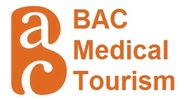Anti-Aging Treatments
Introduction
Aging is a process that is natural and inevitable, which all creatures, through the passage of time, will experience. It is a complex natural phenomenon, presented with decreased adaptability and resistance.
The human aging process is a progress of organ function and reserve capacity falling. Anti-aging is aimed at improving tissue organ function and reserve capacity, bolstering the vascular circulation system, respiratory system, digestive system and neural (immune) system.
Life span is the maximum number of years an individual from a given species can live. For humans, the current accepted maximum life span is 122 years achieved by Jeane Clament of France.
Life expectancy is the average life span for an individual. It is generally given for a person born this year. For example, according to the CDC, anyone born in 2011 could expect to live about 78.7 years.
Life expectancy and aging are influenced by environmental factors, such as: pollution, stress, malnutrition, metabolic disorder, lack of sleep, injury, infection, immune response and organizational structure decline.
Cells, with the passage of time, suffer from a decrease in reserve numbers, capability reduction of self-renewal and differentiation, and from cellular recession of structure and function.
Stem cells are the only known source for rebuilding the body and renewing health by restoring lost or degraded cells.
The goal of our anti-aging program is to close the gap between life expectancy and life span and improve the quality of life. This can be done through healthier living, less exposure to toxins and the prevention of chronic illnesses, and more effectively through WSCMC's innovative unique stem cell-based anti-aging program that can prevent disease, improve cell organization and vitality and increase the its reserve capacity.
Regeneration medicine includes stem cell clinical technology while the regeneration medicine is the most advanced technology at present in the world. Stem cell clinical technology as the most advanced regeneration has received the Nobel Prize Award four years in a row.
Aging is a process that is natural and inevitable, which all creatures, through the passage of time, will experience. It is a complex natural phenomenon, presented with decreased adaptability and resistance.
The human aging process is a progress of organ function and reserve capacity falling. Anti-aging is aimed at improving tissue organ function and reserve capacity, bolstering the vascular circulation system, respiratory system, digestive system and neural (immune) system.
Life span is the maximum number of years an individual from a given species can live. For humans, the current accepted maximum life span is 122 years achieved by Jeane Clament of France.
Life expectancy is the average life span for an individual. It is generally given for a person born this year. For example, according to the CDC, anyone born in 2011 could expect to live about 78.7 years.
Life expectancy and aging are influenced by environmental factors, such as: pollution, stress, malnutrition, metabolic disorder, lack of sleep, injury, infection, immune response and organizational structure decline.
Cells, with the passage of time, suffer from a decrease in reserve numbers, capability reduction of self-renewal and differentiation, and from cellular recession of structure and function.
Stem cells are the only known source for rebuilding the body and renewing health by restoring lost or degraded cells.
The goal of our anti-aging program is to close the gap between life expectancy and life span and improve the quality of life. This can be done through healthier living, less exposure to toxins and the prevention of chronic illnesses, and more effectively through WSCMC's innovative unique stem cell-based anti-aging program that can prevent disease, improve cell organization and vitality and increase the its reserve capacity.
Regeneration medicine includes stem cell clinical technology while the regeneration medicine is the most advanced technology at present in the world. Stem cell clinical technology as the most advanced regeneration has received the Nobel Prize Award four years in a row.

